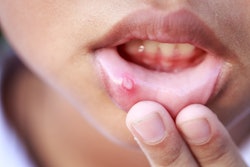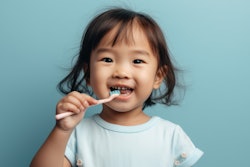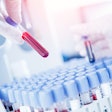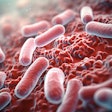Resveratrol, an antioxidant, may help prevent cavities by altering enamel's protective layer and reducing acid production from cavity-causing bacteria. This study was published in the Journal of Dentistry.
Furthermore, resveratrol, a compound found in the skin of grapes and dark berries like blueberries and mulberries, may decrease biofilm metabolic activity and the caries-causing germ Streptococcus mutans (S. mutans), the authors wrote.
"The present study represents the first step regarding the use of resveratrol within the concept of acquired enamel pellicle and biofilm engineering to prevent dental caries," wrote the authors, led by Fernanda Navas Reis of the University of São Paulo Bauru School of Dentistry in Brazil (J Dent, November 17, 2024, 105466).
Previous studies have reported that resveratrol protects enamel from early erosion. This effect is linked to its ability to alter the protein makeup of the acquired enamel pellicle (AEP), increasing acid-resistant proteins. Sublingual orodispersible tablets were introduced as a new way to deliver resveratrol, increasing its bioavailability and enhancing antibacterial and acid-resistant proteins in the AEP, they wrote.
In part 1 of the study, a microcosm biofilm protocol was used with 126 bovine enamel specimens treated daily for one minute with one of the following: resveratrol (50, 100, 200, or 400 µg/mL), phosphate-buffered saline, dimethyl sulfoxide, or 0.12% chlorhexidine.
Biofilms were grown using saliva from 10 volunteers exposed to 0.2% sucrose for five days. Resazurin and viable plate count assays were performed and enamel demineralization was assessed using transverse microradiography, they wrote.
In part 2, 12 volunteers participated in a seven-week triple-blind crossover study with 100 mg/L resveratrol, 0.05% sodium fluoride (NaF) (226 mg/L fluoride), 100 mg/L resveratrol + 0.05% NaF, and deionized water. Biofilm samples were collected from both sides of the mouth 12 hours after using the solutions.
Resveratrol at 50 µg/mL significantly reduced biofilm metabolic activity, while 200 µg/mL decreased S. mutans. Chlorhexidine proved highly effective, significantly reducing all tested parameters, highlighting its role as a strong antimicrobial and anticaries agent. In vivo, resveratrol, either alone or combined with NaF, influenced several bacteria associated with caries, they wrote.
However, participants followed a regular diet without factors that could disrupt the oral microbiome, such as high sucrose intake. Future research will explore resveratrol mouthwashes using cariogenic biofilm models with increased sucrose levels, the authors added.
"These results open a new avenue for the inclusion of resveratrol in dental products to protect the teeth against dental caries," they concluded.



















